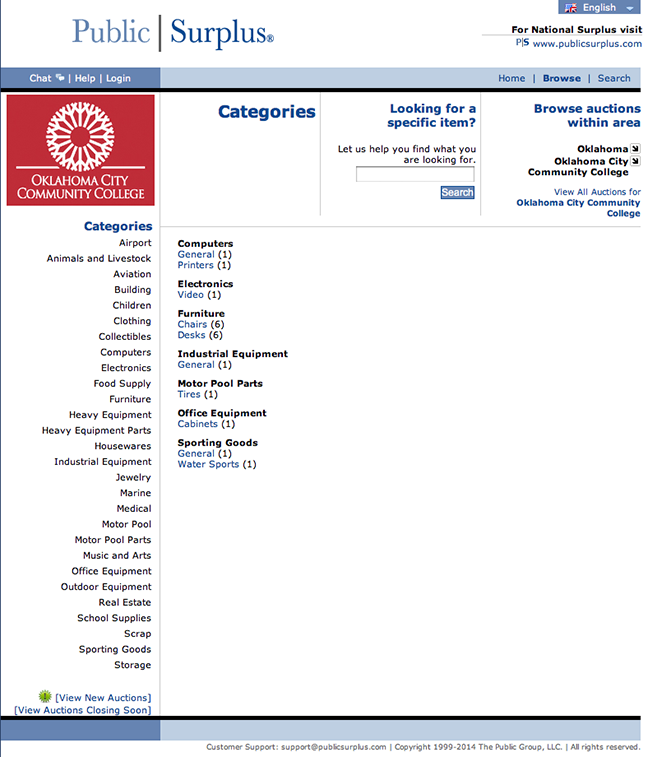College surplus often placed for auction


Thousands of items are listed on OCCC’s inventory. That includes desks, college vehicles, computers and much more — everything it takes to keep a college running. Steve Duncan, Material Control Supervisor is responsible for keeping up with all of OCCC’s inventory as it arrives and as it is no longer needed.
Duncan said once that occurs, the item is removed from a department’s inventory, put into storage and placed on the college’s surplus list. Items on the list that aren’t able to be used elsewhere in the college may then be listed for sale on a government online auction site called Public Surplus and located at www.publicsurplus.com.
“Typically, [those] are items that have been identified as no longer having useful life at the college, yet may have some value outside of the college — like old computers.”
Duncan said there is no real time frame for when items are placed on the surplus site.
“There’s not a busy time of the year versus a non-busy time of the year,” he said. “It’s just as people clean out or reorganize or get new materials in.”
Duncan said computer equipment is the most common surplus item.
“All surplus computer equipment first goes to our [Information Technology] department and they have the power to determine what is no longer going to be needed in the college,” he said.
There is a fairly lengthy process involved in surplusing a computer, he said.
“They trickle down computers. So, department A gets a new computer that may be two or three years old and it goes to tech support. Tech support identifies somebody that may have a 4-year-old computer.
They would then switch out the 4-year-old computer with the 3-year-old computer and then the 4-year-old [computer] would then go into surplus.
“There’s never going to be a computer going into surplus that is a newer make or model than what somebody may be utilizing within the college.”
Duncan said entire computer systems are not typically listed on the surplus.
“One thing [about] the computers is that we don’t sell them as systems,” he said. “We usually sell them in bulk. We’ll sell 10 processors because we look at individual components, not a [whole] computer system.
“If you’re looking to buy a computer system, we’re not selling just one. We’re going to sell a pallet containing 25 to 30 processors and 25 to 30 monitors. We’re just basically going for a mass distribution and trying to recoup some cost back into the college.”
Duncan said computer hard drives are always removed before being sent to surplus.
“For the computers that do come down, the hard drives are always removed for security reasons. We’ll never sell a computer that contains a hard drive.”
In addition to the computer equipment, Duncan said, there also are many desks and chairs to be found on the surplus site.
He said items generally start at a $1 bid, with the exceptions being something of high value such as used vehicles.
To take part in the college auction, create an account on www.publicsurplus.com. The account creation is completed within three steps, which asks for personal information such as email, a street address, name and phone number.
For more information about currently listed items, visit the OCCC college surplus at www.publicsurplus.com and, under the heading “Auction Areas,” choose Oklahoma and Oklahoma City Community College.